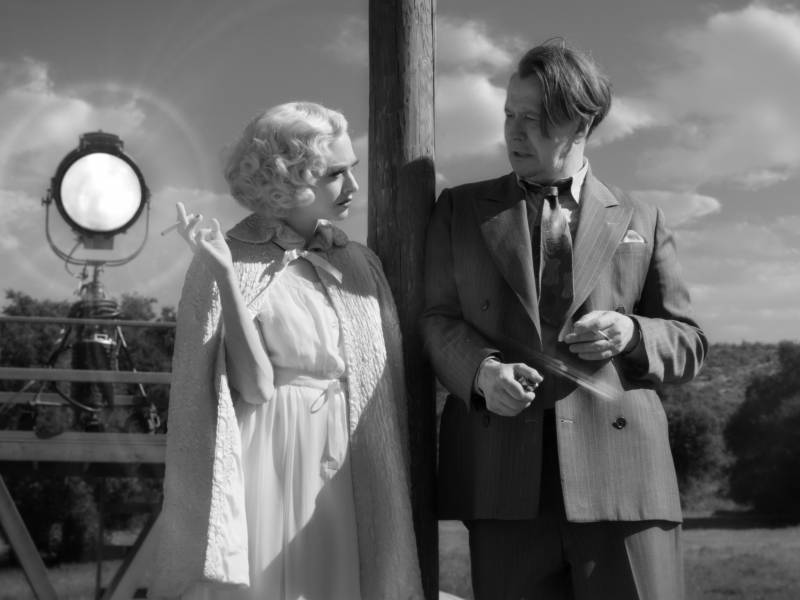A cardinal sin too many biopics indulge in is checking off the beat-by-beat life excerpts, ignoring a specified vision for depicting their real-life protagonists in favor of broad strokes. Mank, directed by David Fincher and based on a screenplay written by his late father Jack, is no such kind of biopic, thankfully. Inspired by Pauline Kael’s spicy (and since widely discredited) New Yorker tome “Raising Kane,” which argued Herman J. Mankiewicz deserved sole credit for the Citizen Kane script, not Orson Welles, the film is as much about Hollywood’s immersion in politics as it is about a writer struggling to finish what would become known as his masterpiece.
“You cannot capture a man’s entire life in two hours, you can only hope to leave the impression of one,” pronounces Mankiewicz (Gary Oldman)—explaining his circuitous, complex approach to writing Kane, but also, implicitly, Fincher’s approach to making Mank.
Homages to Kane abound. The story unfolds non-linearly: In 1940, as a bed-ridden Mank settles in to write the script from a rented ranch house, and in flashbacks to various points in his earlier career working within the Hollywood studio system. (In a nice writerly touch, screenplay slug lines like “Ext. Paramount Studios—Day—1930 (Flashback),” mark time jumps, useful to the viewer following along.) It’s also gorgeously rendered in black and white by cinematographer Erik Messerschmidt and colorist Eric Weidt while deploying visual techniques (such as deep focus) most heavily associated with Kane.
As a movie about a movie—and one that has been propped up as the greatest of all time and included on every Film History 101 syllabus, no less—it could easily fall into the stale trap of navel-gazing and doe-eyed optimism about the magic and power of The Cinema™. On the former, it does stumble a bit, as I can imagine most viewers who aren’t cinephiles may have a hard time following the action of the first 45 minutes or so. (Many long-forgotten Hollywood stars and filmmakers of the 1930s are introduced or name-checked in scene after scene.)
But Fincher, whose creative eye tends to be drawn to the dark and macabre, manages to avoid putting Hollywood on too high of a pedestal, even as he clearly demonstrates his affection for it through his own painstaking techniques. While Mank’s prickly relationship with M-G-M executives Louis B. Mayer (Arliss Howard) and Irving Thalberg (Ferdinand Kingsley), told in flashbacks, has shades of the familiar art-vs.-commerce banter—”If you want a message, call Western Union,” Mayer grunts in one scene, evincing his entire approach to filmmaking—Fincher isn’t so interested in telling a story in which the “art” triumphs. Instead, amidst the clever aesthetic details, there’s sharp attention to deglamorization.

9(MDAxOTAwOTE4MDEyMTkxMDAzNjczZDljZA004))

